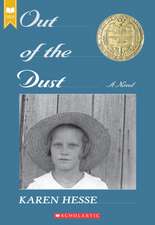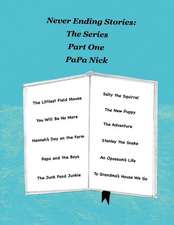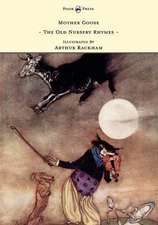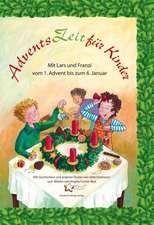Now We Are Six: Winnie-the-Pooh – Classic Editions
Autor A. A. Milne Ilustrat de E H Sheparden Limba Engleză Paperback – 14 mar 2023 – vârsta până la 9 ani
| Toate formatele și edițiile | Preț | Express |
|---|---|---|
| Paperback (2) | 34.47 lei 22-34 zile | +13.12 lei 6-12 zile |
| Aladdin – 12 sep 2024 | 34.47 lei 22-34 zile | +13.12 lei 6-12 zile |
| HarperCollins Publishers – 14 mar 2023 | 52.96 lei 3-5 săpt. | +19.96 lei 6-12 zile |
| Hardback (5) | 82.24 lei 3-5 săpt. | |
| Dover Publications – 17 ian 2023 | 82.24 lei 3-5 săpt. | |
| Penguin Young Readers Group – sep 2020 | 85.17 lei 3-5 săpt. | |
| ALADDIN PAPERBACKS – 6 aug 2024 | 95.64 lei 3-5 săpt. | |
| HarperCollins Publishers – 14 mar 2023 | 98.13 lei 3-5 săpt. | +25.89 lei 6-12 zile |
| Blurb – 16 iun 2023 | 184.68 lei 6-8 săpt. |
Preț: 52.96 lei
Nou
Puncte Express: 79
Preț estimativ în valută:
10.13€ • 10.56$ • 8.39£
10.13€ • 10.56$ • 8.39£
Carte disponibilă
Livrare economică 13-27 martie
Livrare express 26 februarie-04 martie pentru 29.95 lei
Preluare comenzi: 021 569.72.76
Specificații
ISBN-13: 9781405281294
ISBN-10: 1405281294
Pagini: 112
Ilustrații: (With gorgeous full colour decorations by E.H.Shepard)
Dimensiuni: 139 x 208 x 12 mm
Greutate: 0.23 kg
Ediția:UK edition
Editura: HarperCollins Publishers
Seria Winnie-the-Pooh – Classic Editions
ISBN-10: 1405281294
Pagini: 112
Ilustrații: (With gorgeous full colour decorations by E.H.Shepard)
Dimensiuni: 139 x 208 x 12 mm
Greutate: 0.23 kg
Ediția:UK edition
Editura: HarperCollins Publishers
Seria Winnie-the-Pooh – Classic Editions
Notă biografică
A. A. Milne (1882–1956) was an English playwright, poet, and author. He served in both World Wars, but in peacetime devoted himself to writing. He is best known for his Winnie-the-Pooh books, which were inspired by his son, Christopher Robin Milne.
Ernest Shepard (1879–1976) was an English painter and book illustrator. Encouraged by his parents to pursue art, he attended the Royal Academy Schools and began his career illustrating for Punch magazine. During the First World War, he aided the Intelligence Department by sketching combat areas, and he was later awarded the Military Cross for his service with the Royal Artillery. In addition to his work as an artist, Shepard wrote two autobiographies and two novels for children. He is best remembered for his anthropomorphic animal illustrations in The Wind and the Willows and the Winnie-the-Pooh series.
Ernest Shepard (1879–1976) was an English painter and book illustrator. Encouraged by his parents to pursue art, he attended the Royal Academy Schools and began his career illustrating for Punch magazine. During the First World War, he aided the Intelligence Department by sketching combat areas, and he was later awarded the Military Cross for his service with the Royal Artillery. In addition to his work as an artist, Shepard wrote two autobiographies and two novels for children. He is best remembered for his anthropomorphic animal illustrations in The Wind and the Willows and the Winnie-the-Pooh series.
Extras
Solitude
I have a house where I go
When there’s too many people,
I have a house where I go
Where no one can be;
I have a house where I go
Where nobody ever says “No”;
Where no one says anything—so
There is no one but me.
King John’s Christmas
King John was not a good man—
He had his little ways.
And sometimes no one spoke to him
For days and days and days.
And men who came across him,
When walking in the town,
Gave him a supercilious stare,
Or passed with noses in the air—
And bad King John stood dumbly there,
Blushing beneath his crown.
King John was not a good man,
And no good friends had he.
He stayed in every afternoon.…
But no one came to tea.
And, round about December,
The cards upon his shelf
Which wished him lots of Christmas cheer,
And fortune in the coming year,
Were never from his near and dear,
But only from himself.
King John was not a good man.
Yet had his hopes and fears.
They’d given him no present now
For years and years and years.
But every year at Christmas,
While minstrels stood about,
Collecting tribute from the young
For all the songs they might have sung,
He stole away upstairs and hung
A hopeful stocking out.
King John was not a good man.
He lived his life aloof;
Alone he thought a message out
While climbing up the roof.
He wrote it down and propped it
Against the chimney stack:
“TO ALL AND SUNDRY—NEAR AND FAR—
F. CHRISTMAS IN PARTICULAR.”
And signed it not “Johannes R.”
But very humbly, “JACK.”
“I want some crackers,
And I want some candy;
I think a box of chocolates
Would come in handy;
I don’t mind oranges,
I do like nuts!
And I SHOULD like a pocketknife
That really cuts.
And, oh! Father Christmas, if you love me at all,
Bring me a big, red, india rubber ball!”
King John was not a good man—
He wrote this message out,
And got him to his room again,
Descending by the spout.
And all that night he lay there,
A prey to hopes and fears.
“I think that’s him a-coming now.”
(Anxiety bedewed his brow.)
“He’ll bring one present, anyhow—
The first I’ve had for years.”
“Forget about the crackers,
And forget about the candy;
I’m sure a box of chocolates
Would never come in handy;
I don’t like oranges,
I don’t want nuts,
And I HAVE got a pocketknife
That almost cuts.
But, oh! Father Christmas, if you love me at all,
Bring me a big, red, india rubber ball!”
King John was not a good man—
Next morning when the sun
Rose up to tell a waiting world
That Christmas had begun,
And people seized their stockings,
And opened them with glee,
And crackers, toys, and games appeared,
And lips with sticky sweets were smeared,
King John said grimly: “As I feared,
Nothing again for me!”
“I did want crackers,
And I did want candy;
I know a box of chocolates
Would come in handy;
I do love oranges,
I did want nuts.
I haven’t got a pocketknife—
Not one that cuts.
And, oh! If Father Christmas had loved me at all,
He would have brought a big, red, india rubber ball!”
King John stood by the window,
And frowned to see below
The happy bands of boys and girls
All playing in the snow.
A while he stood there watching,
And envying them all…
When through the window, big and red
There hurtled by his royal head,
And bounced and fell upon the bed,
An india rubber ball!
AND, OH, FATHER CHRISTMAS,
MY BLESSINGS ON YOU FALL
FOR BRINGING HIM
A BIG, RED,
INDIA RUBBER
BALL!
I have a house where I go
When there’s too many people,
I have a house where I go
Where no one can be;
I have a house where I go
Where nobody ever says “No”;
Where no one says anything—so
There is no one but me.
King John’s Christmas
King John was not a good man—
He had his little ways.
And sometimes no one spoke to him
For days and days and days.
And men who came across him,
When walking in the town,
Gave him a supercilious stare,
Or passed with noses in the air—
And bad King John stood dumbly there,
Blushing beneath his crown.
King John was not a good man,
And no good friends had he.
He stayed in every afternoon.…
But no one came to tea.
And, round about December,
The cards upon his shelf
Which wished him lots of Christmas cheer,
And fortune in the coming year,
Were never from his near and dear,
But only from himself.
King John was not a good man.
Yet had his hopes and fears.
They’d given him no present now
For years and years and years.
But every year at Christmas,
While minstrels stood about,
Collecting tribute from the young
For all the songs they might have sung,
He stole away upstairs and hung
A hopeful stocking out.
King John was not a good man.
He lived his life aloof;
Alone he thought a message out
While climbing up the roof.
He wrote it down and propped it
Against the chimney stack:
“TO ALL AND SUNDRY—NEAR AND FAR—
F. CHRISTMAS IN PARTICULAR.”
And signed it not “Johannes R.”
But very humbly, “JACK.”
“I want some crackers,
And I want some candy;
I think a box of chocolates
Would come in handy;
I don’t mind oranges,
I do like nuts!
And I SHOULD like a pocketknife
That really cuts.
And, oh! Father Christmas, if you love me at all,
Bring me a big, red, india rubber ball!”
King John was not a good man—
He wrote this message out,
And got him to his room again,
Descending by the spout.
And all that night he lay there,
A prey to hopes and fears.
“I think that’s him a-coming now.”
(Anxiety bedewed his brow.)
“He’ll bring one present, anyhow—
The first I’ve had for years.”
“Forget about the crackers,
And forget about the candy;
I’m sure a box of chocolates
Would never come in handy;
I don’t like oranges,
I don’t want nuts,
And I HAVE got a pocketknife
That almost cuts.
But, oh! Father Christmas, if you love me at all,
Bring me a big, red, india rubber ball!”
King John was not a good man—
Next morning when the sun
Rose up to tell a waiting world
That Christmas had begun,
And people seized their stockings,
And opened them with glee,
And crackers, toys, and games appeared,
And lips with sticky sweets were smeared,
King John said grimly: “As I feared,
Nothing again for me!”
“I did want crackers,
And I did want candy;
I know a box of chocolates
Would come in handy;
I do love oranges,
I did want nuts.
I haven’t got a pocketknife—
Not one that cuts.
And, oh! If Father Christmas had loved me at all,
He would have brought a big, red, india rubber ball!”
King John stood by the window,
And frowned to see below
The happy bands of boys and girls
All playing in the snow.
A while he stood there watching,
And envying them all…
When through the window, big and red
There hurtled by his royal head,
And bounced and fell upon the bed,
An india rubber ball!
AND, OH, FATHER CHRISTMAS,
MY BLESSINGS ON YOU FALL
FOR BRINGING HIM
A BIG, RED,
INDIA RUBBER
BALL!















